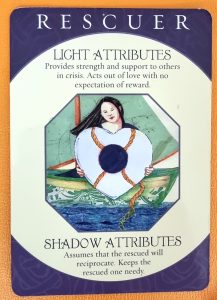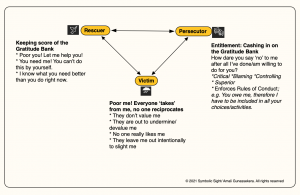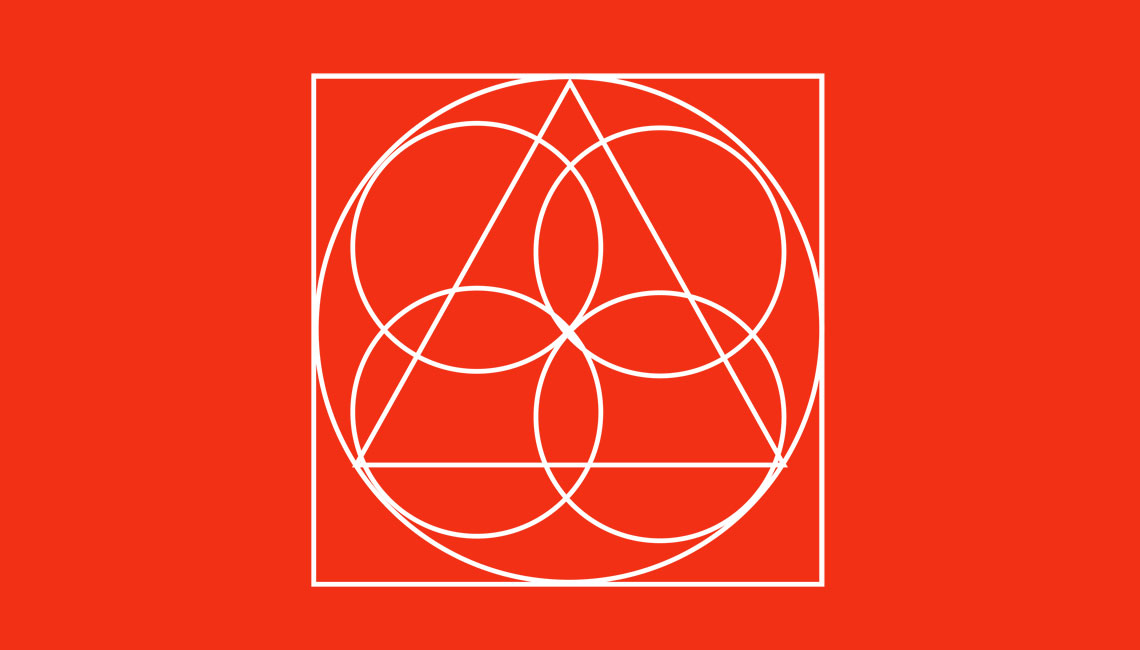
Surrogate Families
As old community and family structures disintegrate, complexities of individual isolation within a crowd are increasing, and surrogate families as support systems in contemporary society have become a common reality. The 90’s TV series Friends is even more relevant today, and gives a keyhole view into one such type of surrogate family.
In this context The Rescuer is a very active archetype; the blueprint beneath any interpersonal interaction that has a give and take involved.
In its healthy expression, the archetype forms the bedrock of a well functioning community or personal relationship. Much like a firefighter or a lifeguard, the Rescuer’s action is quick; in and out, and they are off on their own way. They do not linger, expect a benefit, applause or validation (although a thank you is appreciated!). There are no strings attached to their generosity. Kindness offered is not an invisible investment.
Layers of the Shadow Rescuer
But what can happen, even unbeknown to the Rescuer, is that they are instinctively attempting to create a support network (personally or professionally), for self-validation.
A common pattern of behaviour the Rescuer engages in is described by the Karpman Drama Triangle. There is a carrot and stick dynamic at play.
Even the habits of Keeping up with the Joneses or maintaining the status quo (which involves sacrificing personal truth to belong within a group) can be viewed as a deeper layer of the archetype.
In the personal sphere, a carrot the Rescuer could dangle before the potential rescuee is the intangible benefit of inclusion in a coterie of society. A slightly more complex dynamic is where the benefit is expected from a source outside the two energies (Joneses) interacting with each other. They hope to cash-in in some other way on the association, rather than stand in in the reality of who they really are, devoid of these accrued masks. Here the Rescuer turns Persecutor to a 3rd party (outside the triangle) by appearing superior, dominant, when all the while the subterranean energy is ‘I am not good enough’. The contemporary social media and celebrity Influencer also treads a line between the Rescuer and Persecutor.

If both parties (in 1:1 or 1: many interactions) are hyper-conscious of the synergy of collaboration, they can create wonderfully nourishing, mutually beneficial solutions. These outcomes in a global digital age may serve society too, rather than simply remain within a groove of self-servingness.
The Rescuer has many faces and many layers that makes it hard to discern shadow manifestations while the interaction is ongoing. Developing a premonition for patterns, determining the unravelling direction however, helps one to make active choices and take pre-emptive action.
Boundaries and Over-Giving
In personal relationships, a tricky shadow trait is the classic ‘over-giver’. We are often blinded by offers of generosity, and instantly label them in our minds as ‘good’ or ‘angelic’ (the Rescuer is an umbrella archetype that can display facets of other archetypes such as the Samaritan or Angel). We believe social masks and etiquette, even an inherently trusted vocation of service; in the latter instance, there are no alarm bells or red flags because the recipient is already lulled into a feeling of safety. We very rarely stop to pan back from the spotlight of what’s immediately apparent to notice the variables that surround or underlie a situation, or simply just stop to get a different view. If we do, like crosshatchings of laser beams revealed in smoke, the underlying patterns of control (conscious or unconscious) are revealed.
Sometimes the rescue is unsolicited. In others, if someone is willing to make a seemingly large sacrifice, it may even seem rude or hurtful to say no, especially if they are close to you. With an over-giver, an offer can be as good as an action, and unbeknown to you, you are accruing many debts in a Gratitude Bank. You have no idea what was subconsciously operating within them, creating specific expectations of behaviour from you thereon. This is the darker side of good intentions.
When a Boundary is Experienced as Betrayal
The potent energy of the Drama Triangle is then activated and engages very quickly; a no is an earth shattering personal rebuff and a deep wounding. It’s only much later, after ‘crazy-making’ accusations and attempts to explain yourself to someone who is simply not hearing you, that the underlying pattern of interaction reveals itself.
What has happened is actually a re-wounding, an activation of something dormant within the shadow Rescuer that precipitates the controlling behaviour and the punishing quality of the reaction towards the non-compliant recipient.
To prevent being victimised in these situations, therefore it is essential to know when to refuse generosity – a personal boundary that protects both the receiver and the giver.
If the boundary is respected, new interactions based on independence and interdependence is instilled. If not however, you will lose some friends and acquaintances, especially if the Rescuer is unable to discern a boundary because of enmeshment.
Enmeshment
Enmeshment is a relational pattern in psychotherapy introduced by Salvador Minuchin. Often stemming from early family relationships, personal boundaries are defused, and parent/child roles are undifferentiated (for example, when the child is the confidante of the parent). Another instance is when sub-systems are defused (one child being told or treated as the favourite). On the furthest end of the spectrum sits the narcissistic personality who is simply unable to define where they end, and another begins. They seek to encompass or own others, and can inhabit all three roles to secure an ongoing supply of attention one way or another.
Transactional Relationships
Shadow Rescuer also has a history of experiencing love as a transactional relationship. They feel they have to do something to receive love, because being themselves is not enough.
A good example is a person with an active Emotional Deprivation Schema (see Schema Therapy developed by Jeffrey E. Young), where they never had their emotional needs met as a child. For instance, when a caregiver’s attention, approval, or show of affection was predicated upon the child being obedient and orderly, getting good grades, looking or behaving a certain way, cultural or class expectations etc. Sometimes, celebrations and treats are tied to achievements; the caregiver receives the greatest joy from these rather than merely spending time with the child. The child can instinctively sense the difference in quality of attention, and they develop a complex and off-kilter understanding of love.
Those who seek approval and are addicted to people pleasing often offer assistance that sends them into a cycle of depletion and secret resentment when the expected reciprocation (the act itself or the exact form in which the reciprocation arrives) does not transpire as they had hoped. They enter the engagement out of unconscious fear and not love. Duty is also a double-edged sword for the over-giver. An incredible level of discernment is necessary to figure out when duty is self-harming.
Being Safe for Others
The shadow Rescuer has to learn to become a safe person for others to be around. It’s all about holding space for those they want to help and love, but doing so without hurting themselves in the exchange.
Sometimes it’s necessary to walk through the shadow Rescuer’s heartache, respectful of their treasures and woundings, not judge or attempt to fix them, knowing that to understand is to forgive. When you understand why people do what they do, it’s so much easier to let go and move on. You won’t remain bonded or hooked in, through a negative attachment. But it is essential to speak to the Rescuer with openness, emotional generosity and self-trust. Only you know what is best for you. No one else.
If that fails, the boundary is not honoured and the entitled behaviour continues, despite the potential consequences (losing a friendship, facing gossip and negative judgements) one must simply say no. Then the best choice really is to “chop your own wood [because] it will warm you twice”
© 2021 Amali Gunasekera. All rights reserved.

